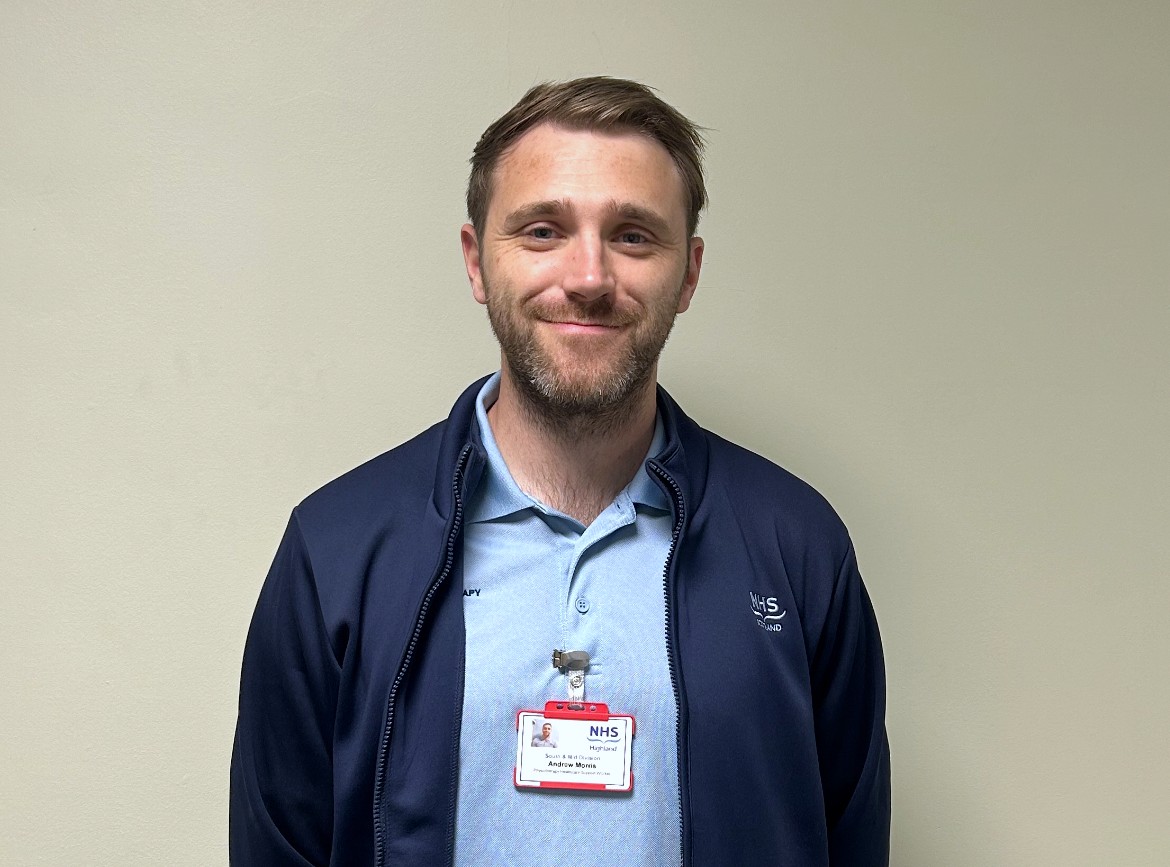
Andrew Morris
06 October 2025
•2 min read

A change of pace and purpose
Three years ago, my daily routine involved spreadsheets, emails, and endless cups of coffee. I had a steady office job, but I felt a growing sense of disconnection from it. I wanted to do something tangible, something that made a visible difference in people’s lives. The truth is, I wanted to go home at the end of the day knowing I had helped someone.
The turning point came after a close family member had a fall and needed extensive physiotherapy to recover. I saw first-hand the incredible impact the physiotherapy team had. It wasn't just about the exercises; it was about their patience, encouragement, and expertise. The support workers, in particular, were the ones providing that constant, hands-on motivation. They were the backbone of the service. A lightbulb went on in my head. That was the job I was looking for!
Making the leap from a comfortable but unfulfilling career was daunting, but the thought of working for NHS Scotland, an organisation built on care, gave me the confidence I needed. I applied for a physiotherapy support worker role in NHS Highland, and I’ve never looked back.
What does a day in NHS Highland look like?
There’s no such thing as a "typical" day, and that’s what I love about it. My role is incredibly varied. I split my time between the fast-paced environment of the hospital wards and the more structured setting of outpatient clinics.
A morning might start on the stroke rehabilitation ward. Here, I work directly with patients under the guidance of a registered physiotherapist. My main role is to help patients carry out the exercise plans designed for them. This could involve helping someone sit up on the edge of their bed for the first time in weeks. I could also be supporting them as they take their first steps with a walking frame. It requires patience and a gentle, encouraging approach. You become their biggest supporter.
In the afternoon, I could be in the outpatient gym. This is a completely different atmosphere. We see people with sports injuries, joint replacements, or chronic back pain. My job involves:
- Setting up equipment for specific exercises.
- Demonstrating exercises to ensure patients are using the correct form.
- Observing and assisting patients as they work through their programmes.
- Keeping detailed notes on their progress for the physiotherapist to review.
Beyond the patient-facing part of the role, I’m also responsible for maintaining the cleanliness and stock levels of the gym and equipment. It’s a physically active job, and it keeps me on my toes, both literally and figuratively.
The people behind the progress
While the clinical side of the job is fascinating, the real heart of the role is the people. You build a unique rapport with patients. You are with them on their toughest days, and you get to celebrate their biggest breakthroughs. There is no feeling quite like seeing that progress first-hand.
I remember working with an elderly gentleman who had lost all his confidence after a hip replacement. He was convinced he’d never be able to walk to the local shop again. We worked together every day for weeks, starting with simple chair-based exercises and gradually building up to walking with a frame. The day he walked out of the department unaided, he turned to me and said, “I’ll see you at the shop.” That’s the moment you remember. That’s the real reward!
Working in the NHS means you are part of a huge, supportive team. I work alongside physiotherapists, occupational therapists, nurses, and doctors. Communication is everything. We all have a part to play in a patient’s recovery, and learning from my colleagues’ expertise has been one of the most enriching parts of my journey.
More than just exercises: The skills you really need
You don’t need a university degree to become a physiotherapy support worker. This makes it an accessible career path for so many people. While on-the-job training is provided, some core personal skills will help you thrive:
- Empathy—you need to understand that patients are often in pain, scared, or frustrated. Being able to connect with them on a human level is essential.
- Patience—Progress can be slow. You have to be prepared to repeat exercises and provide constant encouragement without getting disheartened.
- Clear communication—You need to explain instructions and listen carefully to patients' concerns and feedback.
- Teamwork—You are a vital part of a multi-disciplinary team. Being reliable and collaborative is non-negotiable.
- A positive attitude—Your energy is infectious. A smile and a "you can do this" can make all the difference to a patient's mindset.

Start your journey to a more rewarding career
Has Andrew's story inspired you? If you're looking for a career with real purpose, this could be your next step.
You don’t need a degree to start. You just need the right attitude and a desire to help people thrive. Explore what the role involves and how you can begin your own journey with NHS Scotland.